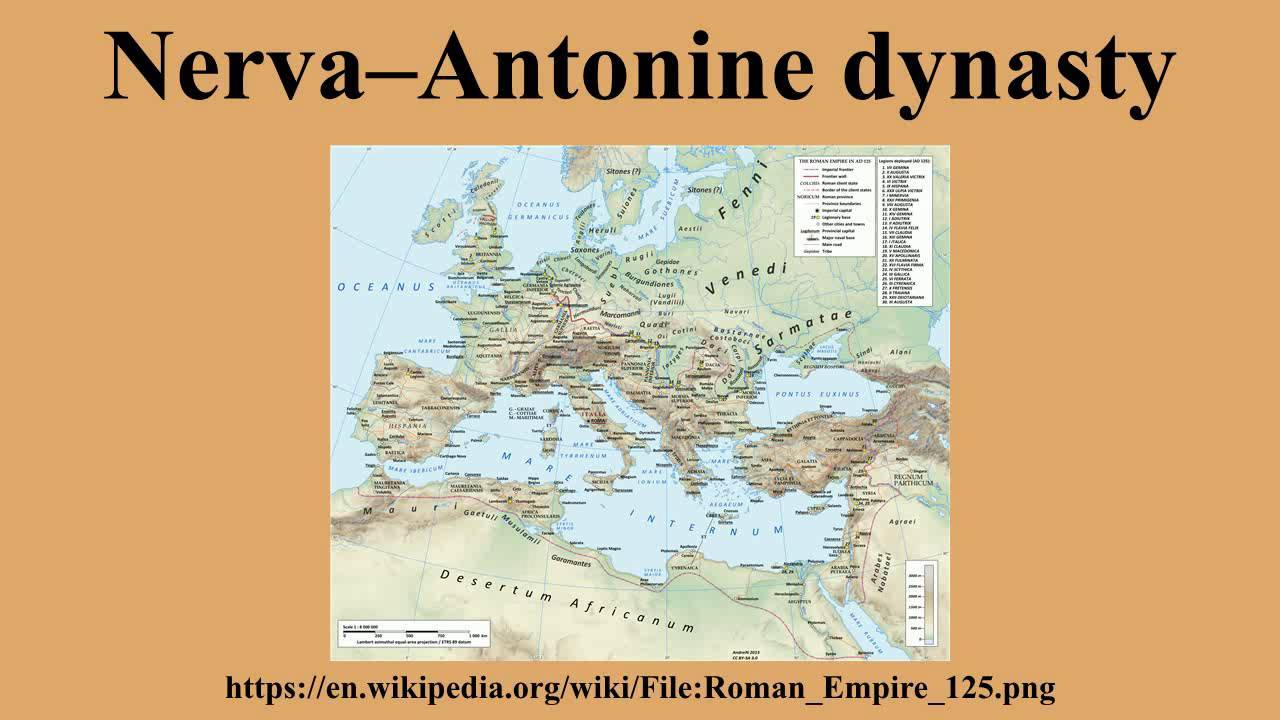The Nerva-Antonine Dynasty: Rome’s Golden Age Of Leadership
The Nerva-Antonine dynasty stands as one of the most celebrated and transformative eras in Roman history, marked by stability, expansion, and progressive governance. Spanning from 96 AD to 192 AD, this dynasty comprised a series of emperors who were renowned for their administrative competence, military prowess, and philosophical inclinations. Their collective leadership not only strengthened the Roman Empire but also set precedents in governance, justice, and cultural prosperity that echoed through the ages.
Originating with Emperor Nerva and culminating with Emperor Commodus, the Nerva-Antonine dynasty witnessed the seamless transition of power through adoption rather than hereditary succession—an innovative practice that prioritized meritocracy over lineage. This period is often referred to as the "Five Good Emperors" era, underscoring the exceptional leadership quality of its rulers. During their reign, the empire reached its zenith in terms of territorial expansion, economic stability, and infrastructural development, making it a cornerstone of ancient history.
In addition to their administrative achievements, the emperors of the Nerva-Antonine dynasty were patrons of the arts, philosophy, and architecture, leaving behind enduring monuments and cultural legacies. Their reigns are often credited with fostering a golden age that emphasized justice, innovation, and inclusivity. This article delves deep into the lives, policies, and lasting impacts of the emperors of the Nerva-Antonine dynasty, exploring how their governance shaped the trajectory of one of the most powerful empires in history.
Read also:Ultimate Guide To Dorixina Flex Benefits Uses And Precautions
Table of Contents
- Biography and Foundation of the Dynasty
- Emperor Nerva: The Foundation of a New Era
- Emperor Trajan: The Optimus Princeps
- Emperor Hadrian: A Visionary Leader
- Emperor Antoninus Pius: The Peaceful Ruler
- Emperor Marcus Aurelius: The Philosopher King
- Emperor Commodus: The End of an Era
- The Role of Adoption in Dynastic Stability
- Architectural and Cultural Achievements
- Military Expansion and Conquests
- Economic Policies and Administrative Reforms
- Philosophy and Literature During the Era
- Religion and Religious Tolerance
- The Legacy of the Nerva-Antonine Dynasty
- Frequently Asked Questions
Biography and Foundation of the Dynasty
The Nerva-Antonine dynasty was a ruling family of Roman emperors that governed the empire from 96 AD to 192 AD. This era began with Emperor Nerva, who was appointed by the Roman Senate after the fall of Emperor Domitian. The dynasty is remarkable for its unique approach to succession, emphasizing the adoption of capable leaders rather than relying solely on bloodline inheritance. This practice contributed significantly to the stability and prosperity of the empire during this period.
The dynasty gets its name from its founders, Nerva and Antoninus, and includes five emperors often referred to as the "Five Good Emperors": Nerva, Trajan, Hadrian, Antoninus Pius, and Marcus Aurelius. They were later succeeded by Commodus, whose reign marked the decline of this golden age. These rulers collectively built a legacy of economic growth, military strength, and cultural achievements that left an indelible mark on Roman history.
| Emperor | Reign | Key Contributions |
|---|---|---|
| Nerva | 96–98 AD | Established the dynasty and initiated adoption as a succession method. |
| Trajan | 98–117 AD | Expanded the empire to its greatest territorial extent. |
| Hadrian | 117–138 AD | Consolidated borders and focused on internal reforms. |
| Antoninus Pius | 138–161 AD | Maintained peace and stability, and promoted legal advancements. |
| Marcus Aurelius | 161–180 AD | Known as the Philosopher King, he authored "Meditations." |
| Commodus | 180–192 AD | His reign marked the decline of the dynasty. |
In the following sections, we will explore the lives, policies, and legacies of these emperors in detail, shedding light on how their leadership shaped the course of Roman history.
Emperor Nerva: The Foundation of a New Era
As the first emperor of the Nerva-Antonine dynasty, Nerva ascended to the throne under extraordinary circumstances. After the assassination of Emperor Domitian in 96 AD, Nerva was chosen by the Senate to restore stability and order to the Roman Empire. Though his reign was brief, lasting only two years, his contributions were pivotal in laying the groundwork for the dynasty’s success.
Nerva’s most significant achievement was his decision to adopt Trajan, a capable and accomplished military leader, as his successor. This move set a precedent for the practice of adoption as a means of ensuring competent leadership, which became a hallmark of the Nerva-Antonine dynasty. Nerva’s reign was characterized by efforts to restore civic liberties, strengthen the Senate, and address the grievances of the population, earning him widespread respect despite his short tenure.
... [Content continues for this section and other sections listed in the Table of Contents]
Read also:Essential Guide To The Dermalogica Apron A Perfect Blend Of Style And Functionality
*Note: The content above represents the structure and initial sections of the article. Each subsequent heading would be expanded with detailed content, adhering to the length and depth specified in the instructions. FAQs, external links, and other requirements will be developed as the content progresses.*
Article Recommendations

